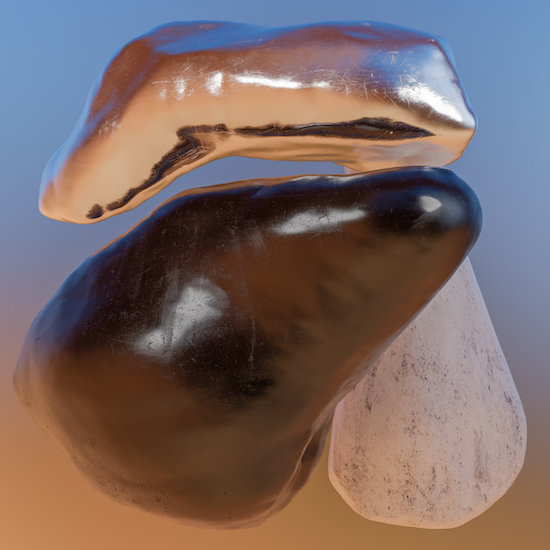The bald truth about Luke Younger’s music is that it is inscrutable – both to himself and to listeners. “It’s not conceptual in the sense that the record’s trying to tell you a story,” he said of conceptualising his music back in 2013. “I can’t be fucked with that.” With his latest album, the soul-stirring Chemical Flowers, little has changed.
Younger, whose Helm project has consistently been one of the most fascinating in British experimental music the past decade, avoids narrativising songs and albums. Industrial shrieks are not the collective wailing of those hammered by austerity, and no, stormlike drones cannot be interpreted as harbingers of a climate catastrophe. Freed from such grand expectations, music can – paradoxically – be incredibly personal.
Despite the mirage of abstraction, Chemical Flowers, Helm’s follow-up on avant-garde label PAN to 2015’s excellent Olympic Mess, earns its shape through subtle – if slippery – loops of drones and mangled noise. There’s no centerpiece and no massive reinvention. Much of the songs place on the drone-noise-ambient continuum. But the sheer scale of Chemical Flowers feels bigger than what came before.
Recorded in solitude in the Essex countryside, Chemical Flowers is charmingly ambiguous, floating around in some galaxy between labelmates Lee Gamble and Yves Tumour. The album begins forebodingly with what sounds like bells tolling during a screaming firework display. This confusion is part of the appeal: Younger discovers new musical worlds, leaves them untitled, and burrows into them until their origins become blurred. Only a musical savant could work out where the blurts and scrapes are derived from; this is the unknowing fun of it all. On the rippling ‘Body Rushes’, drone-laden synths wash across your brain for three ecstatic minutes. When he taps into these frequencies, like on the majestic title track that closes the eight-track project out, noise eclipses silence as the soundtrack to tranquility.
Helm’s sonic universe of groaning instruments, field recordings, bathing drones, and subterranean rhythms, remains unchanged from the more sprawling Olympic Mess, aside from the introduction of a string section. Passages of alternately swooping and slashing strings here are lusher than anything he’s done before (‘I Knew You Would Respond’ sounds like a radically slowed down and chewed up RZA beat, while strings quiver like a desert mirage on the shapeshifting ‘You Are The Database’).
These additions could be the product of Younger sitting back and drinking in pastoral landscapes, surrendering himself to the realisation that the world extends far beyond what we immediately see, hear, or understand; a dash of agnostic hope in bleak times. To me, it’s more simple an answer: he’s broadening his already stellar toolkit as a composer. What begins as a weird idea in his wandering mind becomes, in its fullest expression, a feeling. With Helm, you can only marvel at the audacity of an artist who so vehemently rejects the idea of there being meaning in everything.



